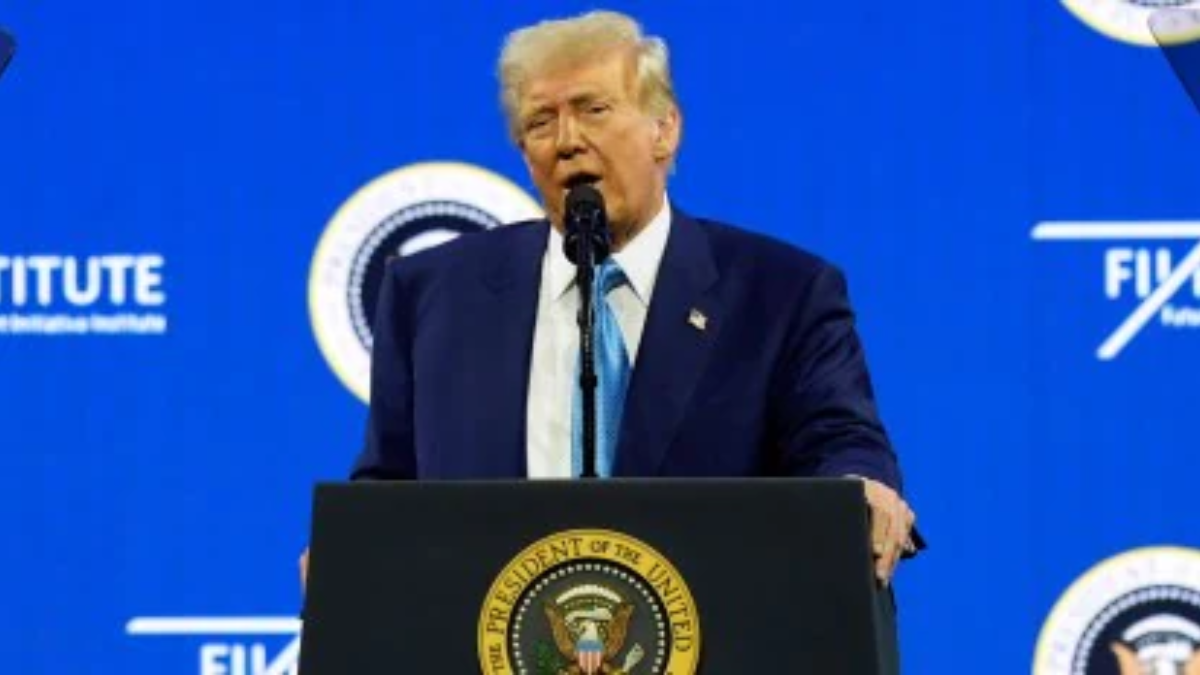Former President Donald Trump has announced his intention to overhaul the Department of Justice (DOJ) if re-elected in 2024. This plan includes the dismissal of all remaining U.S. attorneys appointed during President Joe Biden’s administration. Trump argues that this move is essential to restore impartiality and accountability within the DOJ, which he claims has been compromised under Biden’s leadership.
Why Trump Is Targeting U.S. Attorneys
Trump’s decision to remove Biden-era U.S. attorneys is rooted in his concerns about the DOJ’s alleged political bias. He has consistently accused federal agencies of working against his administration during his first term. For Trump, replacing these attorneys with appointees who align with his vision represents an effort to restore what he sees as fairness in the justice system.
U.S. attorneys play a vital role in enforcing federal laws, overseeing prosecutions, and representing the federal government in legal matters. Their leadership significantly influences enforcement priorities, making their appointments politically significant. Trump’s plan highlights his intent to ensure the DOJ’s actions reflect his administration’s policies.
The Role and Importance of U.S. Attorneys
U.S. attorneys serve as the chief federal prosecutors in their respective districts. Appointed by the president and confirmed by the Senate, they handle high-profile cases, prosecute federal crimes, and defend the U.S. government in civil cases. Their actions can shape how federal laws are enforced on issues ranging from immigration to financial crimes.
While U.S. attorneys are expected to remain impartial, their priorities often align with the administration that appoints them. Trump’s proposal to replace Biden-era attorneys suggests a focus on shifting DOJ priorities to align with his political agenda, should he return to office.
Reactions to Trump’s Plan
Trump’s announcement has drawn mixed reactions. Supporters of the former president argue that the DOJ has become overly politicized and that his plan is necessary to restore trust in the agency. They see this as a critical step to eliminate partisan bias and ensure the justice system operates in a neutral manner.
However, critics warn that firing all Biden-era U.S. attorneys could undermine the independence of the DOJ. Legal experts and political opponents fear that such a move risks politicizing federal law enforcement, potentially eroding public confidence in its impartiality. These concerns echo broader debates about maintaining the balance between political oversight and the autonomy of legal institutions.
Trump’s History with the DOJ
This is not the first time Trump has clashed with the Department of Justice. During his first term, Trump frequently criticized the DOJ for what he perceived as a lack of support for his administration’s priorities. He publicly expressed frustration with then-Attorney General Jeff Sessions and later with William Barr, accusing them of failing to adequately pursue certain investigations, including allegations of election fraud.
Trump’s contentious relationship with the DOJ shaped much of his presidency, with his dissatisfaction fueling efforts to increase executive control over federal agencies. His latest proposal to dismiss Biden-appointed U.S. attorneys reflects his continued push to reshape the DOJ into an institution more aligned with his political goals.
Potential Implications
If implemented, Trump’s plan to remove all Biden-era U.S. attorneys could have significant consequences for the DOJ and the broader justice system. The sudden dismissal of numerous federal prosecutors would create widespread turnover, potentially disrupting ongoing investigations and prosecutions.
In addition, appointing new U.S. attorneys who share Trump’s political priorities could lead to a shift in enforcement strategies. Areas such as immigration law, election integrity, and countering what Trump calls “left-wing extremism” could become focal points for the DOJ. However, critics argue that this approach risks turning the DOJ into a partisan tool, undermining its ability to function as an impartial enforcer of the law.
Broader Context
Trump’s proposal comes as the 2024 presidential election looms closer, with the former president positioning himself as a champion of conservative values and a reformer of federal institutions. His stance on the DOJ aligns with broader efforts to consolidate control over government agencies, a theme that has resonated strongly with his base.
However, the implications of such sweeping changes extend beyond politics. The independence of federal institutions like the DOJ is a cornerstone of the American justice system, and any perceived threat to that independence could have long-term repercussions for public trust in government.
Looking Ahead
As the 2024 election approaches, Trump’s vision for the DOJ will likely remain a key point of contention. His plan to dismiss Biden-era U.S. attorneys highlights broader debates about the role of partisanship in federal law enforcement and the balance of power between political leaders and independent agencies.
Supporters view Trump’s proposal as a necessary measure to restore accountability and impartiality within the DOJ. Critics, however, caution that such a move could undermine the institution’s integrity and politicize its operations.
While the future of the DOJ under a potential second Trump administration remains uncertain, one thing is clear: Trump’s proposals will continue to shape discussions about justice, accountability, and the role of federal institutions in American society.
Conclusion
Trump’s plan to fire all Biden-appointed U.S. attorneys reflects his determination to reshape the DOJ in his image. While his supporters see this as a bold step toward restoring fairness, critics argue that it risks undermining the agency’s independence.
As voters prepare to head to the polls in 2024, Trump’s vision for the DOJ will remain a focal point in political debates, with its implications likely to reverberate far beyond the election. The broader question of how to balance political oversight with institutional integrity will continue to challenge the American justice system in the years to come.
For an in-depth discussion on the role of U.S. attorneys and their impact on justice, visit The Hill.
Disclaimer – Our team has carefully fact-checked this article to make sure it’s accurate and free from any misinformation. We’re dedicated to keeping our content honest and reliable for our readers.








